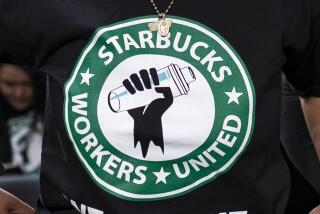Gap touts improvements for overseas workers
- Share via
SAN FRANCISCO — While Gap Inc.’s stores have been disappointing shoppers and investors, the factories making the retailer’s clothes have been treating workers better, according to the company’s latest assessment of its labor practices.
The update released Thursday marked the third time the owner of the Gap, Old Navy and Banana Republic chains had publicly critiqued the conditions in overseas factories often derided as “sweatshops” because of abuses inflicted on employees.
The San Francisco-based company began a campaign to clean up the problems in 2004 with its inaugural “social responsibility” report -- a breakthrough that has since prompted similar reviews by other major U.S. merchants and apparel brands that rely heavily on overseas manufacturers.
“Gap really has led the charge on a lot of this stuff,” said Kevin Thomas, a spokesman for the Maquila Solidarity Network, a labor rights group in Toronto.
Although Gap deserved praise for shedding light on factory conditions, Thomas said, the retailer could do more by elaborating on steps it is taking to ensure workers in countries like China, India and Mexico are paid higher wages -- a detail missing from Thursday’s report.
Still, Gap ranks among the most forthcoming retailers and apparel manufacturers regarding labor practices according to a report released earlier this year by the Ethical Trading Action Group, which includes the Maquila Solidarity Network.
Gap believes its crackdown on sweatshops eventually will be good for business.
There hasn’t been a payoff so far, with Gap mired in a three-year sales slump triggered by a series of fashion mistakes. The funk led to a 30% decrease in Gap’s profit last year and management has already warned it will be worse this year.
What’s more, Gap’s market value has dropped by about $7 billion, or about 34%, since the company released its first social responsibility report. Gap shares fell 20 cents Thursday to $16.27.
Gap Chairman Robert Fisher, whose family controls about one-third of the company’s stock, said the financial misery would not affect the retailer’s efforts to protect overseas factory workers.
“We know that as a market leader and company with a portfolio of well-recognized brands, we have the potential to help make a lasting, positive impact on people around the world,” Fisher wrote in the report.
Based on inspections of all but a few of its 2,053 factories, Gap concluded conditions were excellent or good in 61% of the plants during 2006, up from 57% in 2005. Serious problems were found in 15% of the factories in 2006, down from 20% in 2005.
More to Read
Inside the business of entertainment
The Wide Shot brings you news, analysis and insights on everything from streaming wars to production — and what it all means for the future.
You may occasionally receive promotional content from the Los Angeles Times.










